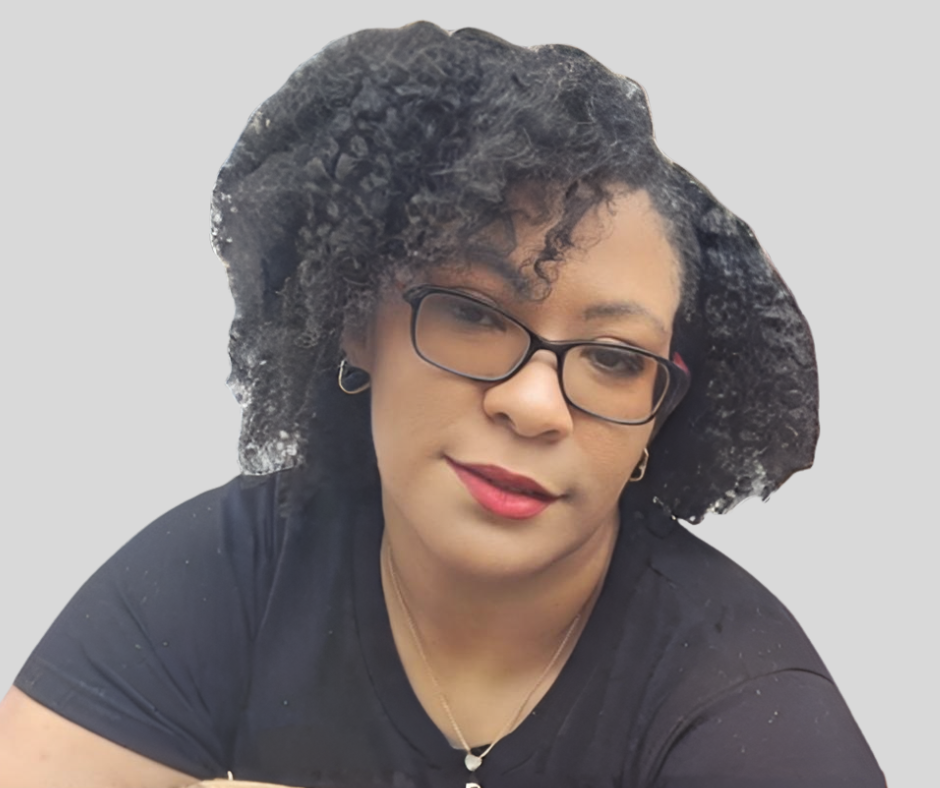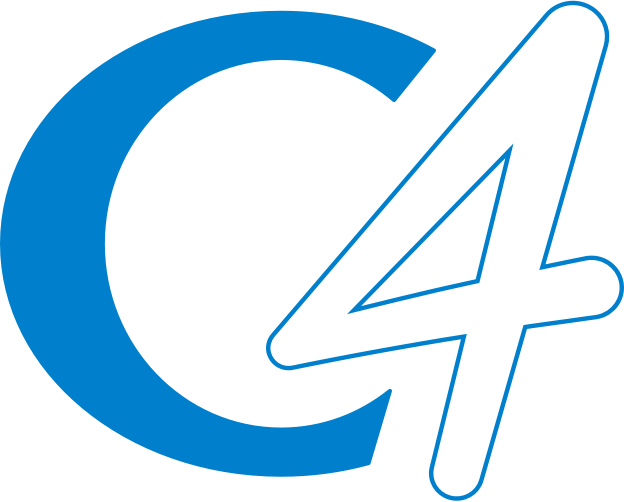Blog
Employee Spotlight: Danielle McQuay
We sat down with Director of Community and Rapid Response Danielle McQuay to talk about her new role leading C4’s comprehensive model for crisis response and prevention. McQuay was born and raised in Chicago, earned her graduate degree from Jane Addams College of Social Work, and spent three years working overnight as a SASS clinician before joining C4 full-time in 2021. She enjoys spending time with her family and regularly mixes cocktails for them and her friends.
C4: Why don’t you start by telling us a little bit about yourself?
Danielle McQuay: I was born and raised in Chicago. My mom is from Atlanta, and my grammy is from Florida. I mention them because I’m aware of their impact on my upbringing and life in general. I stay close to home. I went to Illinois State university for undergraduate, and I came back here to UIC for graduate school at Jane Addams College of Social Work. And right after I graduated, I started working for DCFS. I graduated in May, started working there in June, and I worked there for the next 11 years. Outside of work I’m very family oriented. We spend a lot of time together. I’m one of two, I have a sister, and she has two children. And that’s that. Spend time with my niece and nephew, mom, and grammy.
C4: Now everyone knows C4 doesn’t inhibit love. You can have a successful relationship and work at C4, even in Rapid Response.
DM: This is actually true because I started working here in December of 2021… and our two-year anniversary is July 11.
C4: And were you hired at C4 as a supervisor?
DM: I worked night shifts for C4 since 2018. December 2021 is when I left DCFS and just did the night shift at C4, and in September of 2022 I became a supervisor for Rapid Response. I quickly progressed and was promoted to the director level, March of this year. At the beginning it was a lot of tag-teaming, like me and the former director were just tag-teaming day to day because it’s so difficult. I would say I fully took over in May, which is not long ago at all.
C4: I would ask what a typical day is like for you, but I’m not sure how your director role separates from the rest of your responsibilities. What is life like for you when you punch in and punch out?
It absolutely rolls over and is enmeshed in a way. I start my day being a director. I’m checking voicemails, looking at emails, looking at complaints. I usually check the portal where our SASS referrals come in. Most of the time I begin my day with maybe a call off. This whole week I’ve been a supervisor, a director, a clinician, and doing triage. I’ve done all the things this week. I’m checking a lot of systems, sending a lot of emails, reviewing a lot of emails, talking to staff, following up on things we need to do. I usually meet with our community partners. I attend a lot of meetings, so I’m gaining a lot of knowledge and learning new things. That’s pretty constant throughout the weeks. What I really like about my day-to-day is talking to my staff and supervisors, encouraging them, giving them answers to their questions, listening to them, and providing support. Maybe we get a laugh in or a joke, maybe something funny happens. I’m all about humor and I want us to talk to each other, laugh with each other, and kind of like each other. And it works out well when that happens. But it does change every day.
C4: I know there are a lot of different challenges with this department. How are you handling that?
DM: There’s been a lot of changes at C4 and as we’re getting acclimated to one another, [new CCO Dr.] Annette [Love] is getting acclimated to the department, and I’m getting acclimated to my role, there’s a lot of adjusting, learning and problem-solving going on. I problem-solve every single day. There are basically two 24-hour programs that are pretty significant. I have clinicians, peers and case managers treatment and family support staff. If there’s not a staff person to do something, I have to do it, all the time.
C4: I know you’re somewhat removed from clinical work, but is there an experience you had with a client or another clinician that changed how you approached your work?
DM: A great deal of my experience is with DCFS, which touches on everything. I had a number of staff, families, adults, everything under the sun. I would say the biggest thing I’ve taken away from working with different people at different stages of life, different ages, different races, different ethnicities, all the differences that we come with, is that there must be a level of mutual respect and understanding. I always try to bring a type of calmness to the room and just listen. I learned the value of just listening to people – and I mean really listening, reflecting, making eye contact, all those things – so they feel heard. A lot of people don’t feel heard in their families or their workplaces, so I would say that’s my biggest takeaway. Just to listen, be present, and just try to develop relationships with clients. I do the same with my staff. I believe in relationships in leadership; I believe in mutual respect and trying to like each other. Laugh with each other sometimes. I think that’s okay, and I want that for my department.
C4: The last question, which is especially important for crisis work, is what’s one thing you want people outside the sector to know about the work that you do? Are there any misconceptions you want to clear up?
DM: I think a misconception is that we’re not to be trusted. A lot of the populations we serve have some mistrust in us and in the system in general. A lot of times, clients we see now think we’ll automatically do something without their permission or their consent, or without listening to them; that we’ll hospitalize them or call 911 or the police will be involved. At C4, what we try to do is minimize the crisis. We try to deescalate the situation. We were created to stabilize people in their communities, not recommend hospitalization. Our goal is always to figure out how we can link you to resources or help you identify natural supports so you can be stable in the comforts of your home, with your friends or your family. We want to go with the least restrictive option all the time, and we want clients to feel like they can come to us for help. Most people don’t go into social work for themselves, I can tell you that. I get some fulfillment and satisfaction helping others. Even if I’m the only social worker they came across that listened and was helpful, I’m okay with that. I just want to be that for people.



